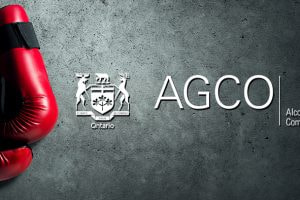SAFE Bet Act: A Closer Look at Tonko’s Proposal to Limit Sports Betting in New York
New York Congressman Paul Tonko is set to introduce the SAFE Bet Act, aimed at regulating the burgeoning sports betting industry with a focus on advertising, deposit limits, and the use of artificial intelligence. This legislation seeks to establish a safer gambling environment, reflecting a significant shift from his previous proposal.

Introduction to the SAFE Bet Act
The SAFE Bet Act, conceptualized by New York Congressman Paul Tonko, emerges as a pivotal legislative effort to address the burgeoning concerns surrounding the sports betting landscape. This bill is designed to introduce a series of regulatory measures aimed at fostering a healthier gambling environment, marking a significant transition from Tonko’s previous legislative endeavor, the “Betting on our Future Act,” which proposed a total ban on sportsbook advertising.
At the heart of the SAFE Bet Act is a public health-oriented framework that seeks to mitigate the adverse effects of sports betting by establishing minimum federal standards for advertising, deposit limitations, and the use of artificial intelligence in gambling practices. The Act proposes stringent restrictions on sportsbook advertisements during live sporting events and bans promotions encouraging gambling, such as bonus bets and odds boosts.
Besides advertising constraints, the legislation aims to cultivate responsible gambling habits among New Yorkers by limiting the number of deposits a bettor can make within a 24-hour period to five. It also mandates affordability checks before placing large bets and prohibits the use of credit cards for funding gambling accounts, addressing concerns over financial overextension and problem gambling.
Perhaps most notably, the SAFE Bet Act takes a firm stance against the application of artificial intelligence in gambling operations, specifically targeting AI’s role in tracking players’ betting activities for personalized promotion and creating betting markets. By confronting these issues head-on, Tonko’s bill represents a comprehensive approach to reforming the sports betting industry in favor of consumer protection and public welfare.
The Specifics of Tonko’s Legislation
Representative Paul Tonko’s SAFE Bet Act introduces specific, targeted regulations designed to reform the online sports betting industry. A key aspect of the bill is the limitation on sportsbook advertising; it prohibits advertising during live sporting events and any promotional content that incentivizes gambling, like bonus bets and odds boosts. This approach aims to curb the pervasive influence of gambling ads, particularly during moments of high engagement with sports fans.
Moreover, the legislation places strict caps on the frequency of online deposits, limiting bettors to no more than five transactions within a 24-hour window. Additionally, it requires betting operators to perform affordability checks for large bets, a move to prevent financial overreach by gamblers. The prohibition of credit card use for account funding further underscores the bill’s commitment to promoting responsible betting practices. Also noteworthy is the bill’s stance on artificial intelligence, banning its use for tracking betting habits and creating individualized betting markets, marking a significant step towards safeguarding consumer privacy and integrity in sports betting.
Implications for Sports Betting in New York
The introduction of the SAFE Bet Act by Rep. Paul Tonko could herald significant changes in New York’s sports betting landscape. By imposing stringent regulations on advertising and betting practices, the Act is poised to reshape how operators engage with consumers, potentially leading to a more responsible gambling culture.
While the legislation is designed to protect consumers from excessive gambling and its associated risks, industry stakeholders express concerns over its restrictive nature. The limits on advertising and deposits and the ban on AI for tracking and promotion could impact USA betting sites ability to market effectively and adapt to bettors’ preferences. However, proponents argue that these measures are crucial for fostering a safer gambling environment in the state.
Public and Industry Reaction to the Proposal
The SAFE Bet Act, introduced by Congressman Paul Tonko, has elicited a mixed reaction from the public and industry stakeholders. Many in the general public applaud the initiative, viewing it as a necessary step towards combating problem gambling and enhancing consumer protection in the rapidly expanding sports betting sector.
On the other hand, industry representatives have voiced concerns over the Act’s potential to stifle innovation and competitiveness. Limitations on advertising and the use of AI are seen as particularly contentious, with some arguing that these measures could hinder personalized customer experiences and operational efficiencies.
Despite these concerns, there’s a consensus among many that the Act could lead to more responsible gambling practices. The debate continues as stakeholders await further developments, indicating the complex balance between consumer protection and industry growth.



